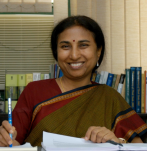Applied sciences: impact on development
Applied research focuses on solving a specific, practical problem of individuals or societies. Unlike basic research, applied research is directly concerned with resolving common problems that affect life, work, health, and overall well-being and prioritizes fixing particular problems that frequently affect people. However, basic and applied research are still closely connected. Basic research often informs applied research; applied research often helps basic researchers refine their theories. Basic research is essentially curiosity-driven while applied research is problem-oriented and used for a mission for a specified period.
It is well documented that advanced research in the applied sciences such as technology, engineering, medicine, agriculture and the environment can lead to improvements and solutions to many of the challenges that individuals and communities face in the developing world, including climate change and natural disasters, disease, sanitation, housing and food security.
Applied research begins with the identification of a real-world problem. Furthermore, applied researchers discern the cause of the problem and investigate alternative solutions for that problem. While the primary objective of applied research is solving real-world problems, it also adds to the knowledge base about the evolution and consequences of different problems. Such information serves as a useful future reference for related problems. The very little money available for research in low income countries can be justified when it gets attached to daily lives with implications.
Keynote Presentation: Bina Agarwal
"Re-Thinking the Way We Farm"
Live online presentation, followed by an interview on Agarwal’s background, career choices, challenges, highlights.
Follow up questions from members.
She has written extensively on agrarian change, environmental governance, property and land rights, food security, and poverty and inequality, especially from a gender and political economy perspective. Her 13 books include the award-winning, A Field of One’s Own (Cambridge University Press,1994); Gender and Green Governance (Oxford University Press, 2010); Gender Challenges (OUP, 2016), a three volume compendium of her selected papers, and Gender Inequalities in Developing Economies (2021, in Italian trans.). She has written for the New York Times, and writes often for Indian Express, Times of India and Outlook.
Among her many awards and honours are several book prizes; a Padma Shri prize in 2008 from the President of India; the Leontief Prize 2010 ‘for advancing the frontiers of economic thought’; the Louis Malassis International Scientist Prize 2017; Order of Agricultural Merit, France, 2017; and the International Balzan Prize 2017, ‘for challenging established premises in economics and the social sciences by using an innovative gender perspective’.





